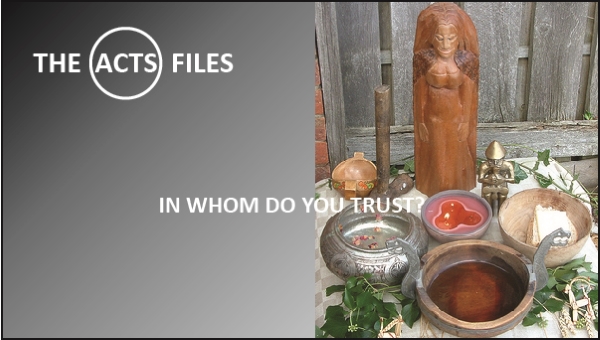By Tyson Thorne

It is appropriate after a discussion of the office of elder to turn to the first false teaching that threatened the early believers. In Acts 15 we see not only the false teaching, but how the church handled it. There is much for us to learn from this remarkable event, which begins with some Pharisees -- who believe Jesus is the Messiah -- coming to Antioch and adding to the gospel of grace.
It may at first read appear ludicrous that the Messianic Pharisees would suggest that circumcision is required for salvation, yet from a Jewish perspective it made perfect sense. For thousands of years when a male converted to Judaism he was required to be circumcised (a tradition that extends to this day). The reason being that God commanded it of all Jewish men, with a few rare exceptions (usually concerning the life of the child). Jewish law (from the Mishna, Midrash and Talmud) states that without circumcision one cannot enter “the world to come” (i.e. the Messianic kingdom). Their concern for keeping this ritual was sincere and not born out of legalism as some might at first assume.
Paul and Barnabas took great umbrage with adding any act to the gospel, believing that it is by faith alone in Jesus alone that saves. Also, having seen uncircumcised Gentiles receive the Holy Spirit confirmed for them that this was no longer a necessary requirement for salvation. So the apostles and Pharisees and a few others from Antioch went to Jerusalem to meet with the other apostles and elders to determine the matter. In the end circumcision was deemed to be unnecessary.
What strikes most readers is what the Jerusalem council did require of the Gentiles. Remember, the council met to decide what was necessary for salvation, not for a religion. The council deemed that to be saved one must refrain from eating meat that had been strangled, sacrificed to an idol, drinking blood, and sexual immorality. Does this mean that one can lose their salvation if the participate in any of these activities?
The short answer is “no”, but a satisfactory answer requires some explanation. First, recall that these are requirements for Gentile believers. This observation helps point us to the reason these demands were made. What was different about the Gentiles from their Jewish brothers in Christ? The answer to that question is how they worshipped. In Gentile cultures it was common to worship many gods, everything from Caesar and other rulers to the Roman/Greek deities all the way down to household idols. Once we understood what this worship entailed, we can understand the prohibitions the Jerusalem council imposed.
Idol worship consisted of four practices: idol worship (giving praise to an inanimate representation of the god), sacrifice of an animal to the God (usually a cow but not always, hence the cow the priest of Zeus was going to sacrifice to Barnabas) by strangulation, drinking the animals’ blood, and having sex with the idols servants who were temple prostitutes. Notice how these practices align with the list of prohibited actions.
The mandate, then, was to cease participation in the worship of idols which was a common activity and which could affect the salvation of the individual. One cannot worship both the one true God and false gods and expect to be saved. For worshipping other gods reveals the truth behind your faith, namely that you are not trusting in Jesus alone for both this life and the next (which is the salvation message).
Today one would be hard pressed to find a group that strangles cattle, eats their meat and drinks their blood, but there are other ways people show they do not trust in God alone. What activities might you engage in that show your allegiance is divided?
|
|
|
